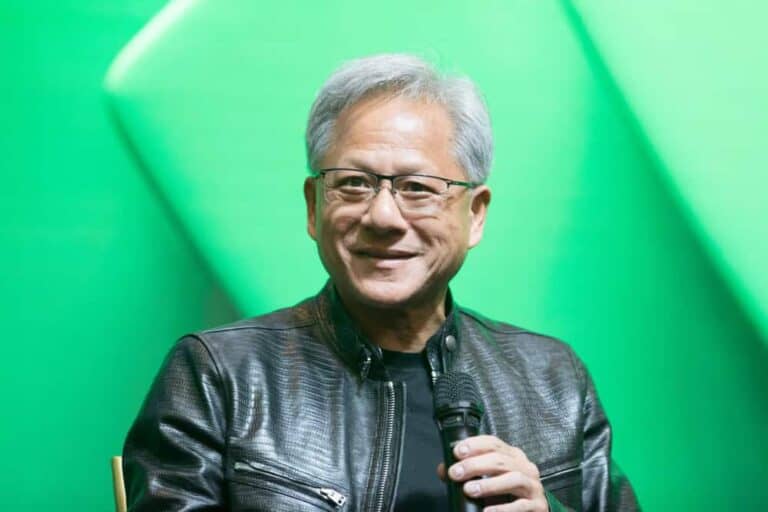On Tuesday, Nvidia announced that it would be booking a quarterly write-down of approximately 5.5 billion dollars in connection with the export of certain graphics processors to China and other destinations. The share price fell by more than six percent in after-hours trading.
On April 9, the American government informed Nvidia that it needs a license to export H20 chips to China and a few other countries. The company announced having to do this in a press release.
This announcement is the strongest signal yet that Nvidia’s exceptional growth may be slowed by stricter export restrictions on its chips. The US government says they could be used for military supercomputers, making China a potential danger. Under President Biden’s administration, restrictions were placed on the export of AI chips in 2022. A year later, these were tightened to prevent the sale of more advanced AI processors.
The H20 is an AI chip that Nvidia developed for the Chinese market. The company designed the chip within the framework of American export regulations. This chip is estimated to have generated between 12 and 15 billion dollars in 2024. It is a watered-down version of the H100 chip, which has since been replaced by the Blackwell series.
Read more: Nvidia GTC 2025 roundup: Blackwell Ultra, HPE, Cisco and more
Halving of sales from China
CEO Jensen Huang (photo) said during the presentation of the previous quarterly figures in February that sales from China had halved compared to the level before the export measures. He warned that competition in China is increasing and named Huawei as a competitor in the annual report for the second consecutive year.
According to the annual report, China is Nvidia’s fourth largest region in terms of sales. The country comes after the United States, Singapore and Taiwan. More than half of sales in the past fiscal year came from American companies.
Nvidia’s H20 chip is comparable to the H100 and H200 AI chips used in the US and other countries. However, the chip has slower connection speeds and less bandwidth. The chip is based on an earlier generation of AI architecture, Hopper, than the current Blackwell iteration that launched in 2024. Nvidia introduced this generation in 2022. Nvidia is now focusing on selling its latest AI chips, which are being marketed under the name Blackwell.
The Chinese company DeepSeek, which turned the market upside down earlier this year with its competitive AI model R1, used H20 chips in its research.
New trade restrictions
In addition to existing export controls to China, Nvidia will also face new restrictions starting next month based on so-called AI distribution rules, which were first proposed by the Biden administration.
Nvidia previously stated that further restrictions on its chips would disrupt competition and could even undermine the technological position of the US. The company indicated that it had moved some of its activities out of China since the 2022 measures. This includes testing and distribution.
